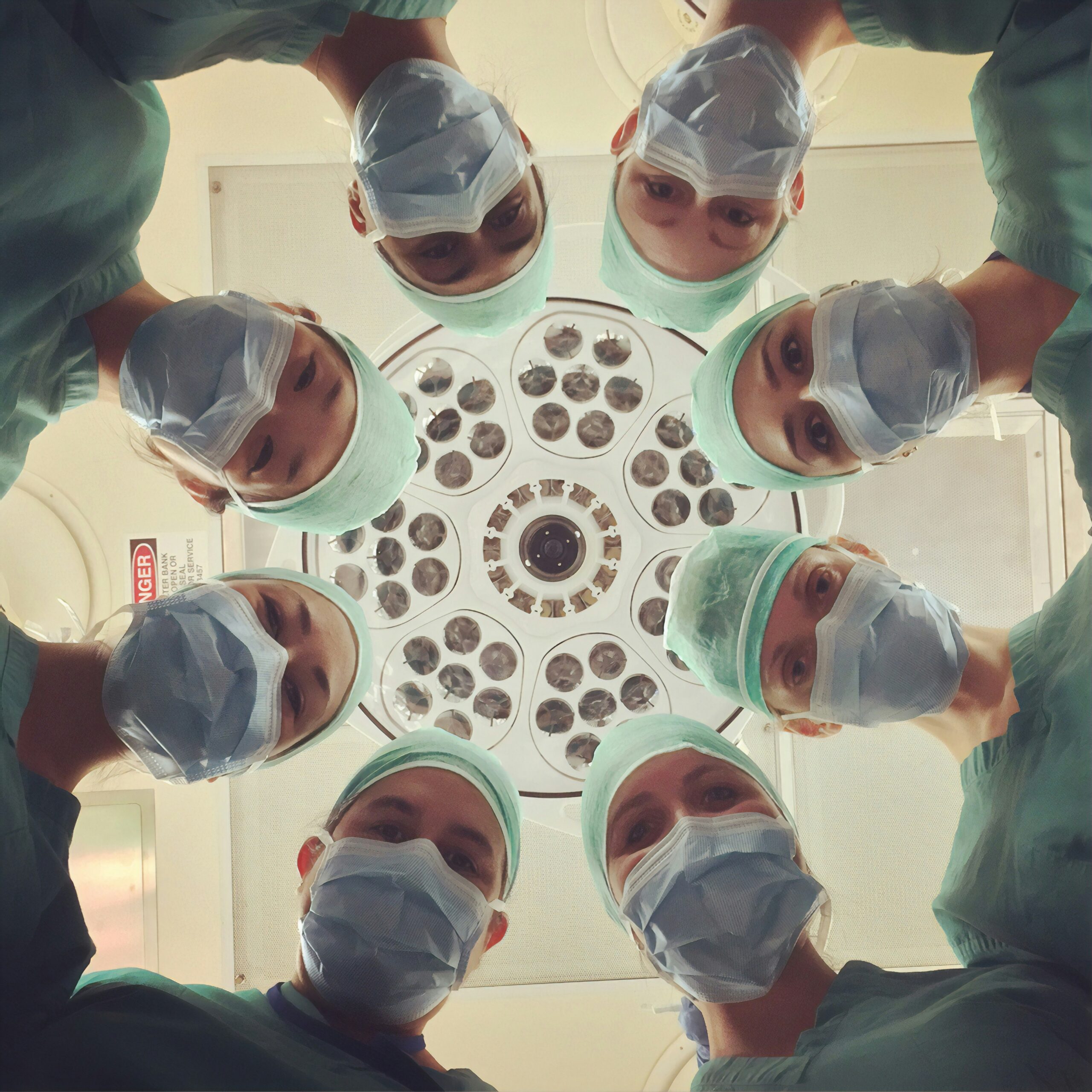Introduction to Healthcare Innovations and Longevity
In recent years, the convergence of innovative technologies and healthcare has sparked a renewed interest in the quest for longevity. The relationship between healthcare advancements and lifespan extension cannot be understated, as innovations ranging from groundbreaking medical treatments to preventive strategies have significantly changed how we perceive aging and health. As the global population continues to age, understanding these innovations becomes increasingly essential for both individuals and healthcare providers.
Many individuals are concerned about the implications of aging, which can be accompanied by chronic illnesses, diminished quality of life, and increased dependency. However, the advent of modern healthcare innovations, including telemedicine, personalized therapies, and even artificial intelligence, has the potential to mitigate these concerns. Cutting-edge medical technology allows for earlier diagnoses, targeted treatments, and preventive care that can transform the aging experience, promoting a healthier and longer life.
Moreover, the integration of lifestyle changes into healthcare practices has received considerable attention. Enhanced nutrition, awareness of physical activity monitoring, and mental health support play crucial roles in longevity. These holistic approaches, combined with technological advancements, create a comprehensive framework that not only tackles health issues but also empowers individuals to take charge of their well-being as they age.
This article will delve into the multifaceted impact of healthcare innovations on extending lifespans. Readers can expect to gain insights into the latest medical breakthroughs, successful health practices, and the societal implications of these advancements. By exploring these topics, we aim to highlight the transformative power of healthcare innovations in redefining the aging process and enhancing overall quality of life.
Breakthrough Technologies Shaping Healthcare
Advancements in healthcare technologies have substantially influenced the way medical professionals diagnose and treat patients, ultimately leading to extended lifespans and improved health outcomes. Among these innovations, telemedicine, artificial intelligence (AI), and personalized medicine stand out as pivotal elements driving this transformation.
Telemedicine has revolutionized patient access to healthcare services, allowing individuals to consult with healthcare providers remotely. For instance, a study published in the “Journal of Medical Internet Research” indicates that telehealth interventions have led to a 70% increase in patient engagement and adherence to treatment plans. This is particularly beneficial for elderly populations or those residing in remote areas, where access to healthcare facilities may be limited. The convenience of virtual consultations not only enhances accessibility but also reduces unnecessary hospital visits, promoting overall wellness.
Artificial intelligence plays a crucial role in evaluating and interpreting vast amounts of medical data. Advanced AI algorithms can scrutinize medical images, predict potential health risks, and even assist in surgical procedures. A notable example is the use of AI in radiology, where it has demonstrated accuracy rates exceeding 90% in detecting conditions such as tumors and fractures, thus enabling earlier and more accurate diagnoses. A recent report by Stanford University reveals that AI systems now assist in diagnosing skin cancers, reducing diagnosing time by up to 30%, which consequently improves treatment initiation timelines.
Moreover, personalized medicine tailors treatment strategies based on individual genetic profiles and lifestyle factors, ensuring that patients receive the most effective treatment. The emergence of pharmacogenomics, the study of how genes affect drug response, exemplifies this innovation. By analyzing a patient’s genetic makeup, healthcare providers can prescribe medications with a higher likelihood of effectiveness, reducing trial-and-error periods and associated side effects. Case studies have documented significant improvements in patient outcomes, particularly in the management of chronic diseases like diabetes and cancer.
Through the integration of these breakthrough technologies, healthcare is becoming more efficient, precise, and patient-centric. As the industry continues to evolve, the potential benefits of telemedicine, artificial intelligence, and personalized medicine are poised to further extend lifespans and enhance the quality of life for countless individuals.
The Role of Preventive Healthcare and Lifestyle Adjustments
Preventive healthcare is increasingly recognized as a crucial component of extending lifespans and enhancing overall quality of life. This approach emphasizes the importance of regular health screenings, enabling individuals to detect potential health issues before they escalate into serious conditions. Routine check-ups and early interventions can significantly mitigate the risks associated with chronic diseases, such as heart disease and diabetes, which are known to impact longevity. Thus, engaging in preventive measures is fundamental for enhancing health outcomes.
Moreover, nutrition plays a pivotal role in preventive healthcare. A balanced diet rich in fruits, vegetables, whole grains, and lean proteins contributes to better health by providing essential nutrients that foster bodily functions. Research has shown that dietary choices are closely linked to life expectancy; those who consume a diet low in processed foods and sugars tend to experience lower rates of chronic illnesses. Adopting a healthy eating pattern, therefore, can be an effective strategy for prolonging life.
In addition to nutrition, regular physical activity is paramount. Engaging in exercise not only strengthens the cardiovascular system but also boosts mental health by reducing stress and anxiety. The World Health Organization recommends at least 150 minutes of moderate-intensity aerobic activity each week for adults. This commitment to physical health can lead to improved metabolic function and, ultimately, longevity.
Lastly, mental health is a significant, yet often overlooked, aspect of preventive healthcare. Practicing mindfulness, managing stress effectively, and fostering social connections can enhance mental resilience and overall well-being. It is evident that a holistic approach involving both physical and mental health through lifestyle adjustments can be instrumental in extending lifespans. Therefore, individuals are encouraged to reflect on their health habits and consider making informed lifestyle changes that promote longevity.
Conclusion: The Future of Healthcare and Lifespan Extension
In examining the transformative innovations within healthcare, it becomes evident that these advancements play a crucial role in prolonging lifespans. From pioneering medical technologies to breakthroughs in personalized medicine, healthcare innovation is fundamentally reshaping our understanding of longevity. As we have discussed, the integration of artificial intelligence, telemedicine, and advances in genetic research are not merely enhancing the quality of care; they are also laying the groundwork for longer, healthier lives.
These developments underscore the need for individuals to remain informed about ongoing advancements in healthcare. As healthcare evolves, so too should our approach to personal health management. By actively engaging with new technologies, such as wearable health devices and health monitoring apps, individuals can take proactive steps toward maintaining their well-being. Moreover, understanding and incorporating personalized medicine based on one’s unique genetic makeup may significantly influence health outcomes and longevity.
As we look to the future, the role of healthcare innovation will only expand, driven by the collective need to address age-related diseases and improve life quality. Encouragingly, the growth of health literacy among the populace allows for a more informed discussion regarding innovative practices that promote longevity. It is imperative for individuals to adopt preventive health strategies and advocate for better healthcare systems that prioritize research and development.
We invite you, the reader, to participate in this vital conversation about healthcare and longevity. Your thoughts and experiences are invaluable—feel free to share them in the comments section below or spread the word through social media. Together, we can contribute to a collaborative environment focused on advancing health and extending lifespans for future generations.





